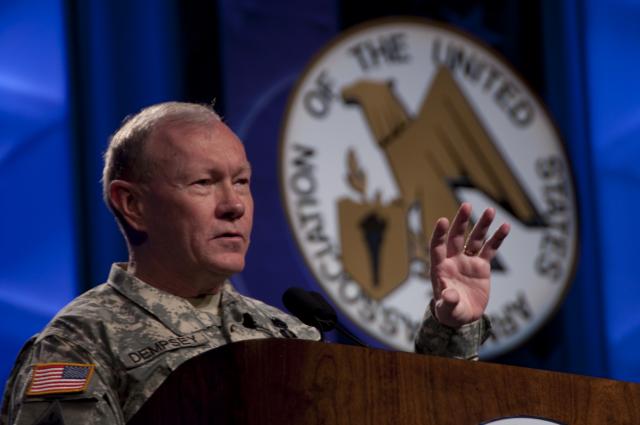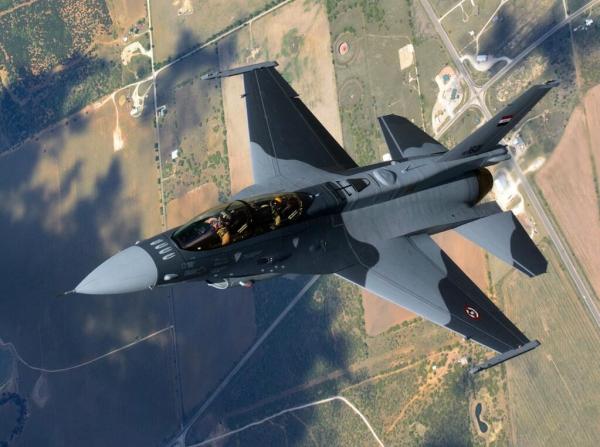Islamist militants have rolled over the Iraqi army because the Shiite-led government has pursued a sectarian agenda that alienated Sunnis, the top-ranking US military officer said Wednesday.
General Martin Dempsey, chairman of the Joint Chiefs of Staff, confirmed that Baghdad had requested US “air power” to fend off the onslaught of Sunni extremists. But he said the political leadership had sown the seeds of the crisis it now faces.
“There is very little that could have been done to overcome the degree to which the government of Iraq had failed its people. That’s what has caused this problem,” Dempsey told lawmakers when asked if the United States could have taken action to counter the advance of Sunni militants.
He said senior US officers in recent years have conveyed to the Iraqi government the risks of their political approach and the need to serve all the country’s religious and ethnic communities. But their advice was largely ignored, he said.
In recent fighting in northern Iraq, militants in the Islamic State of Iraq and the Levant (ISIL) were able to “turn” officers in the Iraqi army, persuading them to side with them, he said.
In the “absence” of military commanders, “the soldiers are not going to stick around and see what happens,” he said.
The four-star general told senators that the US military was “working to provide options to the president” but indicated that there was a need for more precise intelligence given fast-moving events on the ground.
ISIL fighters and other associated militants were “very much intermingled” across areas north of Baghdad.
“It’s not as easy as looking at an iPhone video of a convoy and then immediately striking,” he said.
As an example, he cited recent events at an army base near Mosul that changed hands twice in 36 hours. First ISIL militants seized control from the Iraqi army, then Kurdish peshmerga forces secured control of the facility, Dempsey said.
“And until we can actually clarify this intelligence picture, the options will continue to be built and developed and refined and the intelligence picture made more accurate and then the president can make a decision,” he said.
Dempsey earlier acknowledged that “we have a request from the Iraqi government for airpower,” without providing more details.
At the same hearing before the Senate Appropriations Defense Subcommittee, Pentagon chief Chuck Hagel agreed that the Baghdad government had failed to carry out promises to forge genuine cooperation with Sunni and Kurdish leaders.
He said “this current government in Iraq has never fulfilled the commitments it made to bring a unity government together with the Sunnis, the Kurds, and the Shia.”











